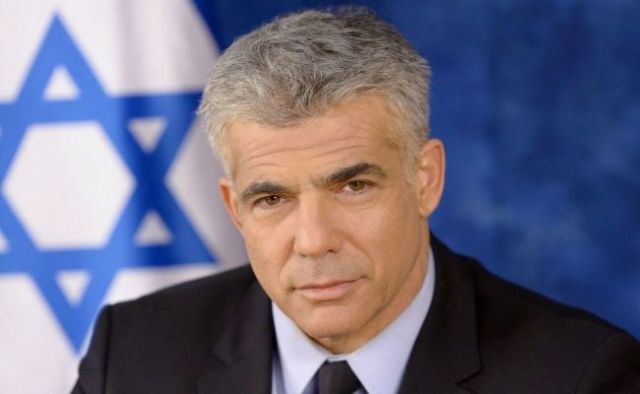Jerusalem. September 25. INTERFAX - Negotiations with Tehran should be conducted while demonstrating the military potential that can be used against Iran if necessary, Israeli Prime Minister Yair Lapid said on Sunday.
"In 2015, when US President Barack Obama pressed Iran to reach an agreement on the Iranian nuclear program, he released data on bunker buster bombs developed by the United States. Iranians always give up before the might of a great power," The Jerusalem Post quotes the prime minister as saying.
He stressed that it is possible to achieve an agreement with Iran better than the Joint Comprehensive Plan of Action (JCPOA) if a "plausible military solution" is on the agenda.
"I want to say a simple thing: Israel has opportunities that even the United States sometimes fears. Israel is not the instigator of the war. We don't want a war. After all, we don't have any historical conflicts with Iran. But it should be clear that Israel will not allow Iran to become a nuclear power," Lapid said.
He recalled that earlier Israel decided to influence the United States and European countries by providing them with facts and intelligence on the Iran problem, and the authorities agreed to involve the Israeli intelligence service Mossad to a large extent in this campaign.
Lapid also said that Israel is not interested in operations in Syria, but cannot allow Iran to use this country to build up military capabilities or transport weapons to the Lebanese Shiite movement Hezbollah. The prime minister made the statement that Syrian President Bashar al-Assad is aware of the danger from Iran for the stability of his regime and is working on the withdrawal of forces loyal to Tehran from Syria.
The previous President of the United States, Donald Trump, unilaterally withdrew the United States from the JCPOA in 2018 and resumed anti-Iranian sanctions, including against the oil sector, which prompted Tehran to gradually abandon compliance with some of the terms of the deal. The current US President Joe Biden declared his readiness to return to the deal under certain conditions.
Iran, the United Kingdom, Germany, China, France and Russia held several rounds of talks in Vienna with the aim of restoring the JCPOA. The United States is not directly involved in them.
Earlier in September, US First Deputy Secretary of State Wendy Sherman said that negotiations on the restoration of the JCPOA had reached an impasse due to Tehran's position on Washington's proposals.

